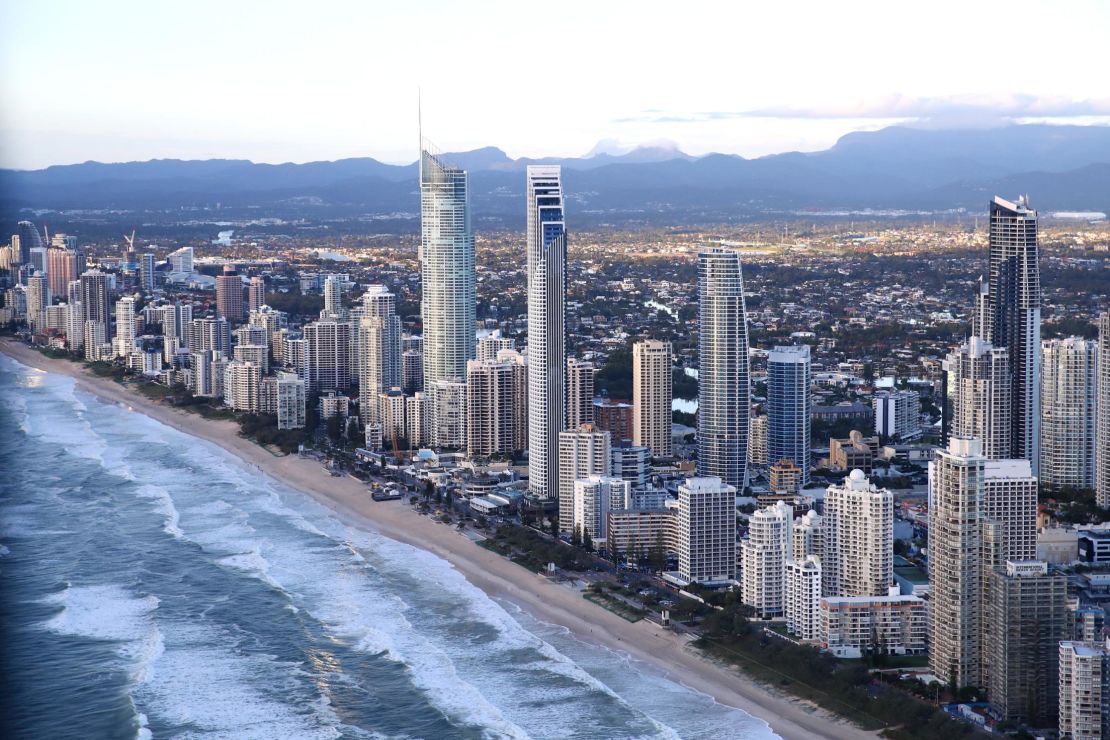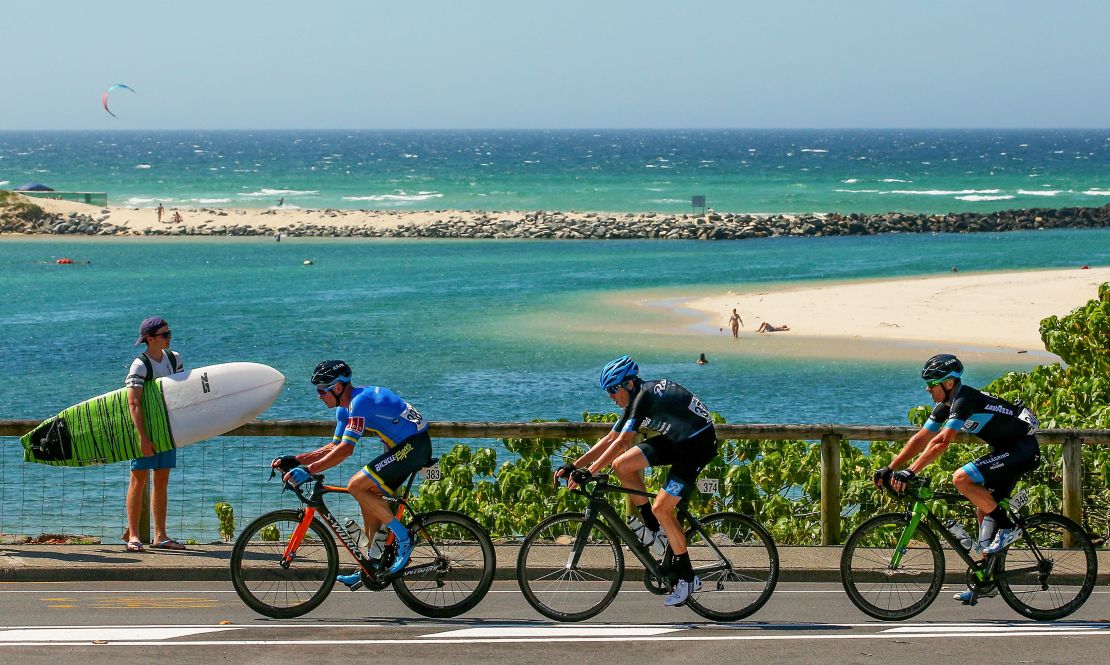Story highlights
Gold Coast will host 2018 Commonwealth Games
Games will run from April 4-15
Over one million tickets have been sold
The Commonwealth Games on the Gold Coast is the biggest sporting event in Australia this decade.
Not since Melbourne hosted the Commonwealths in 2006 has such a rich variety of sporting talents descended Down Under.
From April 4-15, thousands of elite sportsmen and women from 71 nations and territories will compete across 18 sports – including seven para-sports – and bid for a total of 275 gold medals.
Some of sport’s biggest stars, such as swimming superstars Chad le Clos and Adam Peaty, Jamaican sprinter Yohan Blake and home favorite Sally Pearson, will be taking part, while the great Usain Bolt will be on the Gold Coast as a spectator, supporting his fellow Jamaicans.
But what exactly is the Commonwealth Games and what should we expect from this two-week sporting festival?
READ: Queen Elizabeth’s ‘secret message in a bottle’
READ: The swim sensation chasing history
The ‘Friendly Games’
First held in 1930 in Canada as the British Empire Games, this is the 21st edition of the Commonwealths.
Like the Olympics, the multi-sport event – dubbed the “Friendly Games” – is held every four years but, unlike the Olympics, the competition only comprises countries and territories which formed part of the British Empire.
The exceptions are Mozambique and Rwanda, countries with no colonial past or constitutional link to Britain but were admitted to the Commonwealth over the last 25 years.
While 71 countries are eligible to compete, only six have attended every Games since 1930 – Australia, Canada, England, New Zealand, Scotland and Wales.
Nine nations have hosted the Games and this is the fifth time for Australia.
There are rules for the host nation to follow. It must include 10 core sports on its program: aquatics, athletics, badminton, boxing, hockey, lawn bowls, netball, rugby sevens, squash and weightlifting.
But the hosts can then add up to seven more events, and for the Gold Coast basketball, beach volleyball, cycling, gymnastics, para power lifting, shooting, table tennis and triathlon are included.
Not all events will be held on the Gold Coast, however, with track cycling and shooting in Brisbane and basketball’s preliminary rounds held in Townsville and Cairns.
Take a tour of the Commonwealth Games 2018 venues
READ: Going for Commonwealth gold in squash
READ: How viral video redefined the Brownlees
A city transformed
The Gold Coast, situated 62 miles (100 kilometers) southeast of Brisbane, has undergone a huge transformation in preparation for these Games.
“[The Games] changed everything,” Dean Gould, executive director of corporate affairs and strategy for Gold Coast Tourism, told CNN Travel in January. “Over the last five years, the city has come alive again.”


Home to almost 600,000 people, the Gold Coast is Australia’s sixth-largest city. Promising 300 days of sunshine, 35 miles (57 kilometers) of coastline, and about 250 miles (400 kilometers) of canals – nearly 10 times more than Venice – tourists from all over the world are unsurprisingly lured to Australia’s holiday playground.
According to organizers, the Games are estimated to have a $2 billion AUD ($1.5 billion) economic impact on the Gold Coast and Queensland.
“No other event in Queensland’s history has generated the kind of economic impact that the Commonwealth Games will deliver,” said Commonwealth Games Minister Kate Jones.
As part of the city’s multi-billion-dollar makeover, investment has been made to the city’s infrastructure, with the completion of the second stage of the light rail network, while the 24 venues which will host the sports have been spruced up.
Who are the stars?
Though Bolt’s retirement has robbed the Games of some of the stardust of Glasgow 2014, there will still be plenty of big-hitters Down Under.
South African swimmer Le Clos will be aiming to make history.
The multiple world champion and 2012 Olympic gold medalist is hoping to become the most successful athlete in the history of the Commonwealth Games. He is seven medals short of breaking the record of 18, held by shooters Mick Gault of England and Phillip Adams of Australia.
Fellow South African, double 800m Olympic champion Caster Semenya, who has yet to win a Commonwealth medal, will be aiming for the 800m and 1500m double.
Also on the track, New Zealander Valerie Adams has her sights on a fourth consecutive Commonwealth shot put gold, while Jamaica’s sprint queen Elaine Thompson will hope to replicate the form which won her 100m and 200m gold in Rio 2016.
In other sports, keep an eye out for squash’s version of Roger Federer – Nicol David. The 34-year-old Malaysian is the most decorated female squash player of all time and could secure a third straight singles gold.
Commonwealth records?
According to Australia’s double Olympic champion and 11-time track cycling world champion Anna Meares, records will tumble at these Games.
“Bold prediction…. I think almost every Commonwealth Record could fall at this year’s @GC2018 on the Anna Meares Velodrome,” the Australian recently tweeted.
There are 20 gold medals to be won in the velodrome and Australia and England are expected to be the strongest teams with world track champions Emily Nelson, Charlie Tanfield, Ethan Hayter and Kian Emadi forming part of England’s 27-strong squad across track, road, mountain biking and para-cycling.
Over in the pool, expect records to be broken too, especially if Olympic and world champion Peaty is competing.
The English swimmer broke the 50m breaststroke world record twice in one day at the World Aquatics Championships in Budapest last summer, and the big question of these Games is whether the 23-year-old can dip below 57 seconds for the 100m breaststroke.
Not always about winning
The appeal of the Commonwealths, however, is that it is not entirely about winning.
As the old adage goes, it’s about the taking part so expect athletes to make headlines even if they don’t finish top of the podium.
As the youngest competitor in the Gold Coast event and the youngest person to represent Wales at a Commonwealth Games, 11-year-old table tennis prodigy Anna Hursey has already attracted the attention of the world’s media.
“Hopefully I can show some people that I’m good at this sport and not just going there to have fun,” the Cardiff schoolgirl told BBC Sport Wales.
At the other end of the spectrum, 67-year-old Australian Lynne Seymour will make her Commonwealth Games debut in vision impaired lawn bowls.
The Commonwealths will also be significant for Jamaica and Zambia in their rugby development as the two countries are making their debuts in rugby sevens, while in netball Uganda has qualified for the first time.
“This is one of the greatest achievements in the history of Ugandan netball and we can’t wait to represent our country at such a prestigious event,” Uganda captain Peace Proscovia told reporters before the Games.
Queen Elizabeth and the Commonwealth
Heightened security
Over one million tickets have been sold, according to organizers, and it is estimated the Games will attract 672,000 visitors.
Security has been heightened on the Gold Coast and Games chairman Peter Beattie has said that the “safest place in Australia during the Games is actually going to be in the Games.”
A total of 3,500 Queensland police officers and 4,200 security personnel will be present, while Australian Federal Police and the Australian Border Force will also assist the Queensland Police Service.
The Australian Defence Force, responsible for Australia’s army, navy and air force, will also deploy 2,000 personnel to help with the effort.
Spectators have been encouraged to travel light to venues and last year, in an interview with The Guardian, Beattie said he supported temporary police search powers.
“If you turn up with a backpack, one, you’ll be searched before you get there, two, it will delay you getting into a venue,” the former lawyer said.






















































